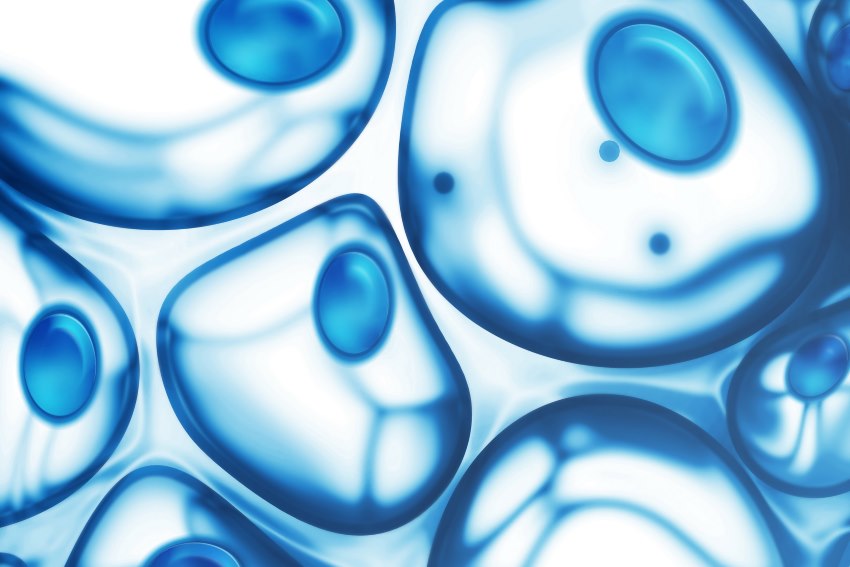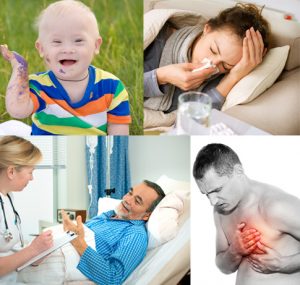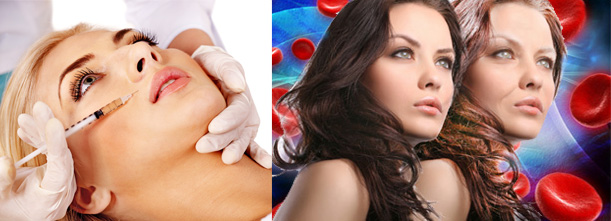Cell Heals Cell
In cell therapy, Cell Repairing is essentially the maintenance of degenerated cells using the administration of cells or cell components to treat the degeneration of the body cells. The administered new cells or cell components are automatically transported to the site of degeneration which needs repairing, stimulating cell division and proliferation as well as increasing their effectiveness to function.
As we grow older, our cells, which are the essence of all organs, consistently deteriorate. A number of cells gradually die. Some other cells may continue to survive, but they may or may not function properly. As these malfunctioning or dead cells increase in number, chronic diseases begin to thrive in our body. These are the reason human grow old and get sick. The optimal treatment of these diseases, including premature aging, is thus the prevention of cell degeneration via repairing using cell therapy.

Cell healing
If the body cells degenerate by more than the natural factors, our body can go through the aging process at a speed that is higher than what it is supposed to be, causing our body to be vulnerable to diseases.
Cell Therapy for the prevention and treatment of diseases
The use of cells to prevent and/or treat diseases in individuals with health conditions caused by cell degeneration is capable of dealing with all primary body system. Cell therapy can strengthen the existing cells and grow an adequate number of new healthy cells to restore homeostasis.
Diseases which are found to respond well to cell therapy include:
- Neurodegenerative diseases: Alzheimer’s, Parkinson’s, mental disabilities, juvenile development retardation, dementia
- Cardiovascular diseases: atherosclerosis, hypertension
- Metabolic and endocrinological disorders: diabetes and chronic renal failure, premenstrual syndrome, adrenal fatigue
- Musculoskeletal degeneration: Osteopenia, arthritis, tendonitis
- Immunological disorders: allergy, psoriasis, rheumatoid arthritis
- Genetic disorder: thalassemia

Cell therapy for anti aging and aesthetic purpose
As time goes by, our body has to face with undesirable changes inevitably. These changes are brought about even more quickly with daily intake of surrounding pollution, physical and mental stress, and accumulated toxins. Signs of aging include wrinkles, uneven skin tone, pigment spots, sagging skin, blurry vision, and decreased energy level. All of these are due to the aging process, which is primarily due to the rate of cell degeneration and death is higher than the rate of its repairing and replacement. This imbalance is visible though the mentioned aging signs. To fight against these degenerations and support our body’s cell replacement, cell therapy is potentially the optimal solution.

Most of the current aesthetic technologies deal with the problems superficially, thus the effects are not permanent or merely just an external concealing. The cells are still old and weak, and the stimulation of these common technologies is just a temporary fix. Even the injections of fillers or BOTOX® do not genuinely improve the skin structure or reverse the aging process.
Cell therapy and sexual performance

The male and female characteristics are different in many ways, including body shape, facial structure, and emotion. These are all determined by the different level of hormones produced by each gender. In female, the primary sex hormone is estrogen, while in male, the primary sex hormone is testosterone. Hormones dictate the functioning of the body physically and mentally. Degeneration of their secreting cells can result in numerous disorders, including premature aging, premenstrual syndrome, alopecia, and erectile dysfunction. To manage the problem in sexual performance effectively, the optimal solution is cell therapy specific for the degenerated organs. Treating these organs with cell therapy can help restoring the balance of sex hormones naturally with little to no adverse events.
Organs which involve sex hormones include:
The ovary: responsible for the production of estrogen and progesterone
The testis: responsible for the production of testosterone and other androgens
The adrenal gland: responsible for the production of all sex hormones and steroid hormones
